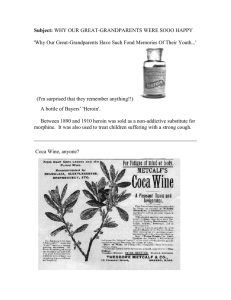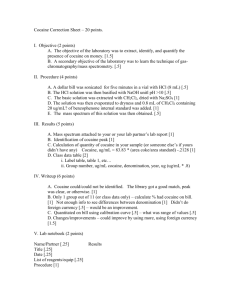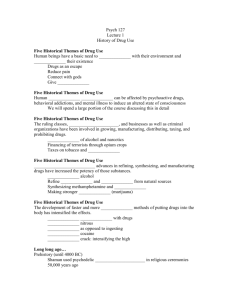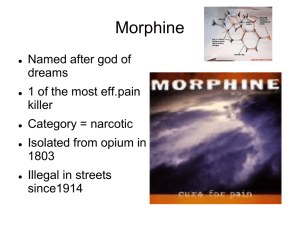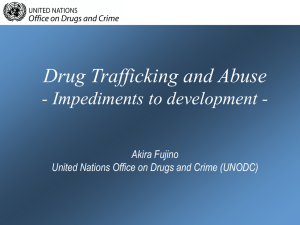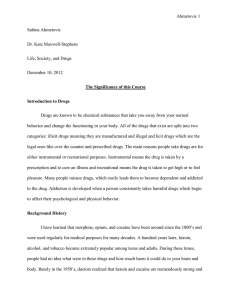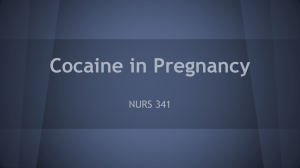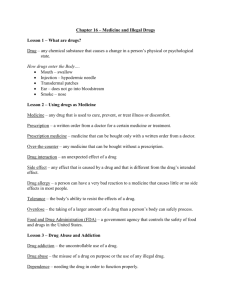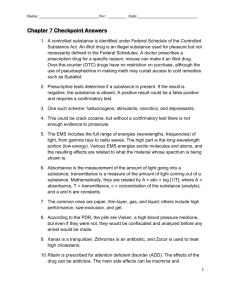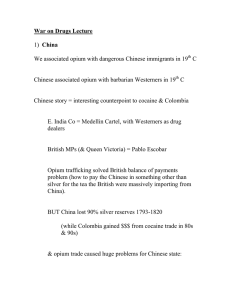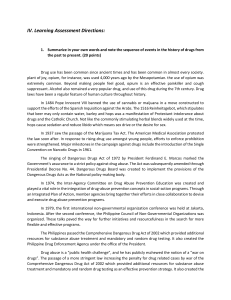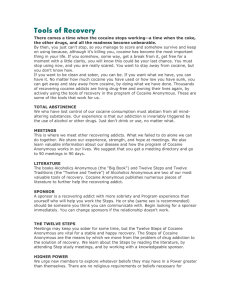21A.344/ STS.062 Second Quiz May 4, 2006
advertisement
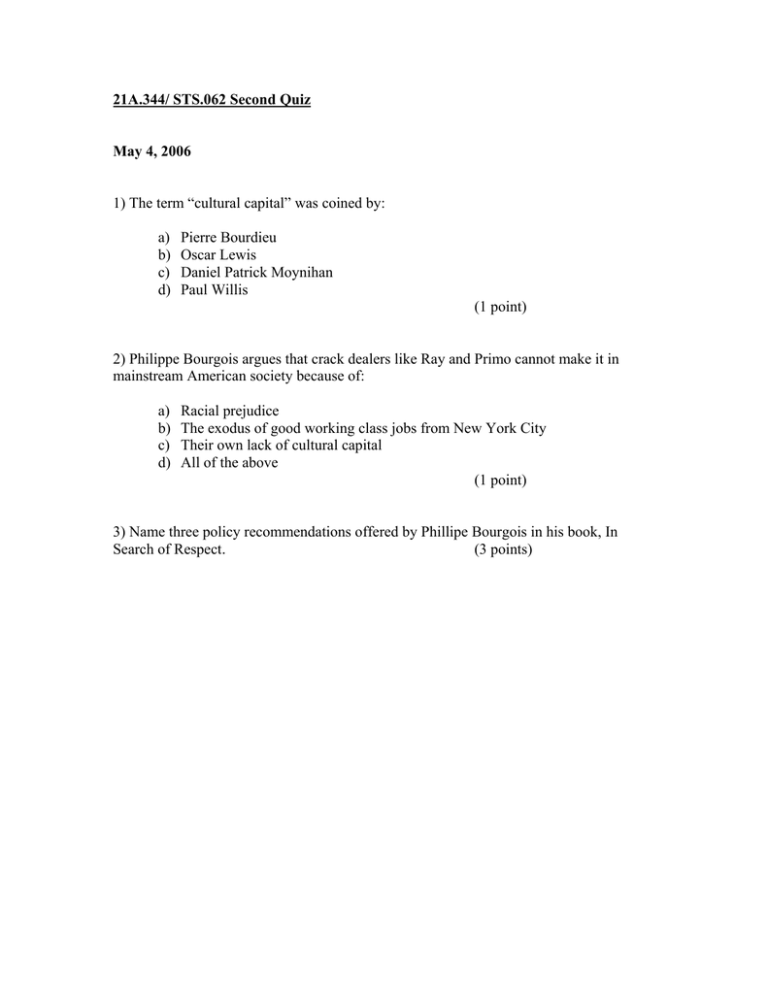
21A.344/ STS.062 Second Quiz May 4, 2006 1) The term “cultural capital” was coined by: a) b) c) d) Pierre Bourdieu Oscar Lewis Daniel Patrick Moynihan Paul Willis (1 point) 2) Philippe Bourgois argues that crack dealers like Ray and Primo cannot make it in mainstream American society because of: a) b) c) d) Racial prejudice The exodus of good working class jobs from New York City Their own lack of cultural capital All of the above (1 point) 3) Name three policy recommendations offered by Phillipe Bourgois in his book, In Search of Respect. (3 points) 4) In 2 or 3 sentences, who was Pablo Escobar? (3 points) 5) Sigmund Freud: a) Never tried cocaine himself b) Tried it and saw it as a multi-purpose wonder drug c) Tried it, thought it had medicinal potential, but worried that it was highly addictive d) Thought cocaine would have no applications beyond its use as an anesthetic (1 point) 6) What are the four major strategic keystones of Switzerland's drug policy? (4 points) 7) David Lenson: a) Sees cocaine use as a parody of consumerism in late capitalist society b) Condemns the disparity in sentencing for cocaine and crack possession c) Celebrates cocaine because it has transferred so much American wealth to Latin America (1 point) 8) “Pharmakos” is: a) b) c) d) A drug The scapegoat A pharmacy An ancient Greek hero (1 point) 9) Lenson says the War on Drugs: a) b) c) d) Is as old as the Republic Was started by Ronald and Nancy Reagan Was started by Richard Nixon as the Vietnam War was ending Was started by George H.W. Bush as the Cold War was ending (1 point) 10) Marez argues that: a) The media have largely been on the sidelines of the war on drugs. b) Mainstream media have largely been a tool of government ideology in the war on drugs, while rap musicians have more often been in an oppositional mode. c) Hollywood, mainstream TV and rap musicians have created a united front against drugs. d) Scarface embodies and celebrates the worldview of druglords. (1 point) 11) According to Bertram, Blachman, Sharpe, and Andreas, what are the three fatal flaws in the War on Drugs? (3 points) 12) Why did efforts at opium eradication fail in Afghanistan, according to James Risen? (3 points) 13) What prompted the outbreak of the Opium War? (2 points) 14) What are the characteristics of a "Schedule I" drug, according to the US government? (2 points) 15) Why did the East India Company view opium sales to China as necessary? (2 points) 16) According to Vanda Felbab-Brown, what percentage of Afghanistan's economy is composed by the trade in opium poppies? (1 point) a) 10% b) 50% c) 33% d) 75% 17) What is a jibaro? (1 point) 18) What is "smurfing" according to the Frontline documentary on meth? (1 point) 19) Who are the FARC? (1 point) 20) When was the Harrison Act passed and what did it do? (3 points) 21) What is pharmacological Calvinism? (3 points) 22) Kramer argues that we value prozac because it helps produce these qualities valued in our society today: a) b) c) d) Methodical care – the “anal character” Aggressiveness Confidence, flexibility, quickness and energy Creative mood swings that lead to great art (1 point) 23) Eric Schlosser argues that the war on drugs shifts punitive authority to the hands of: a) judges b) juries c) District attorneys (1 point)
